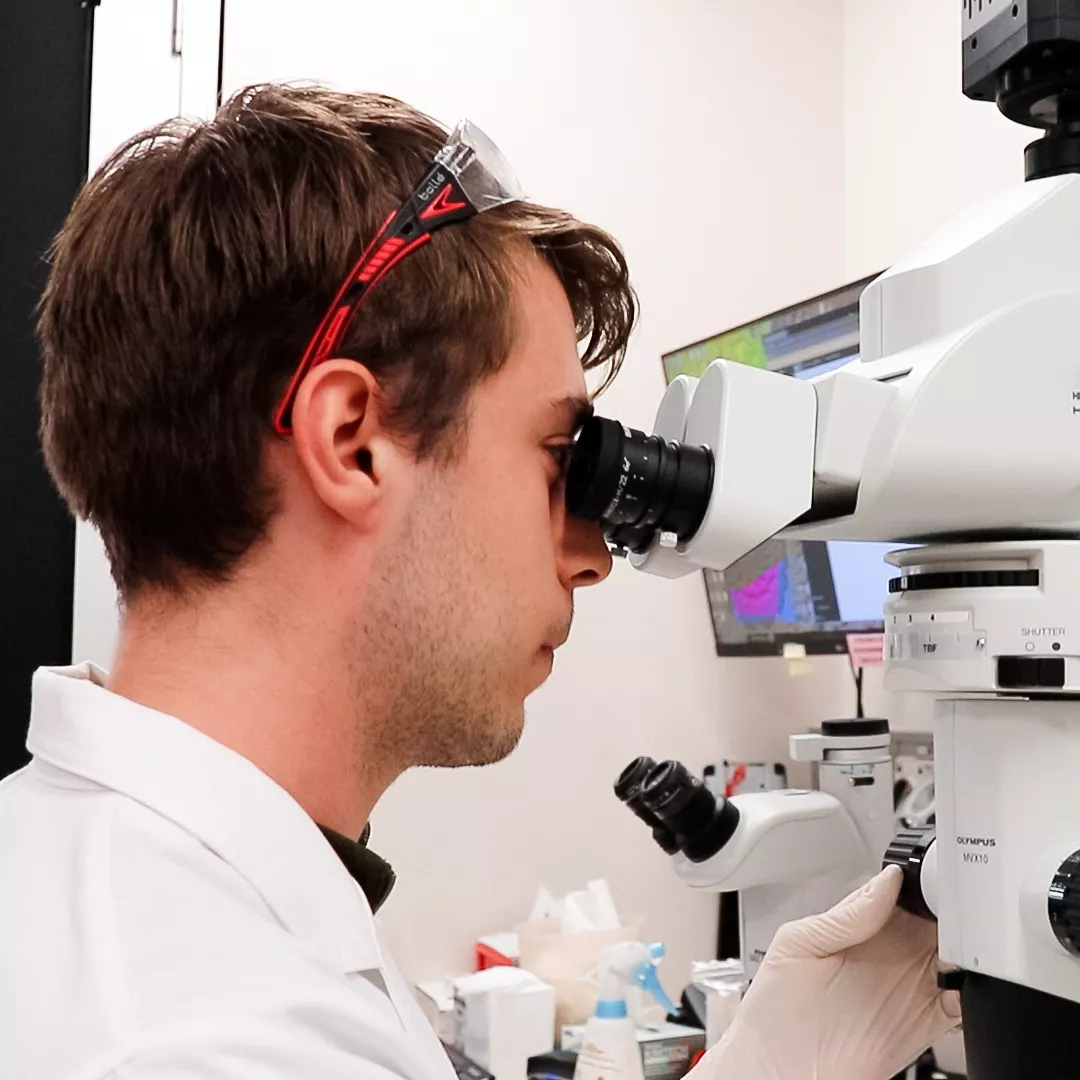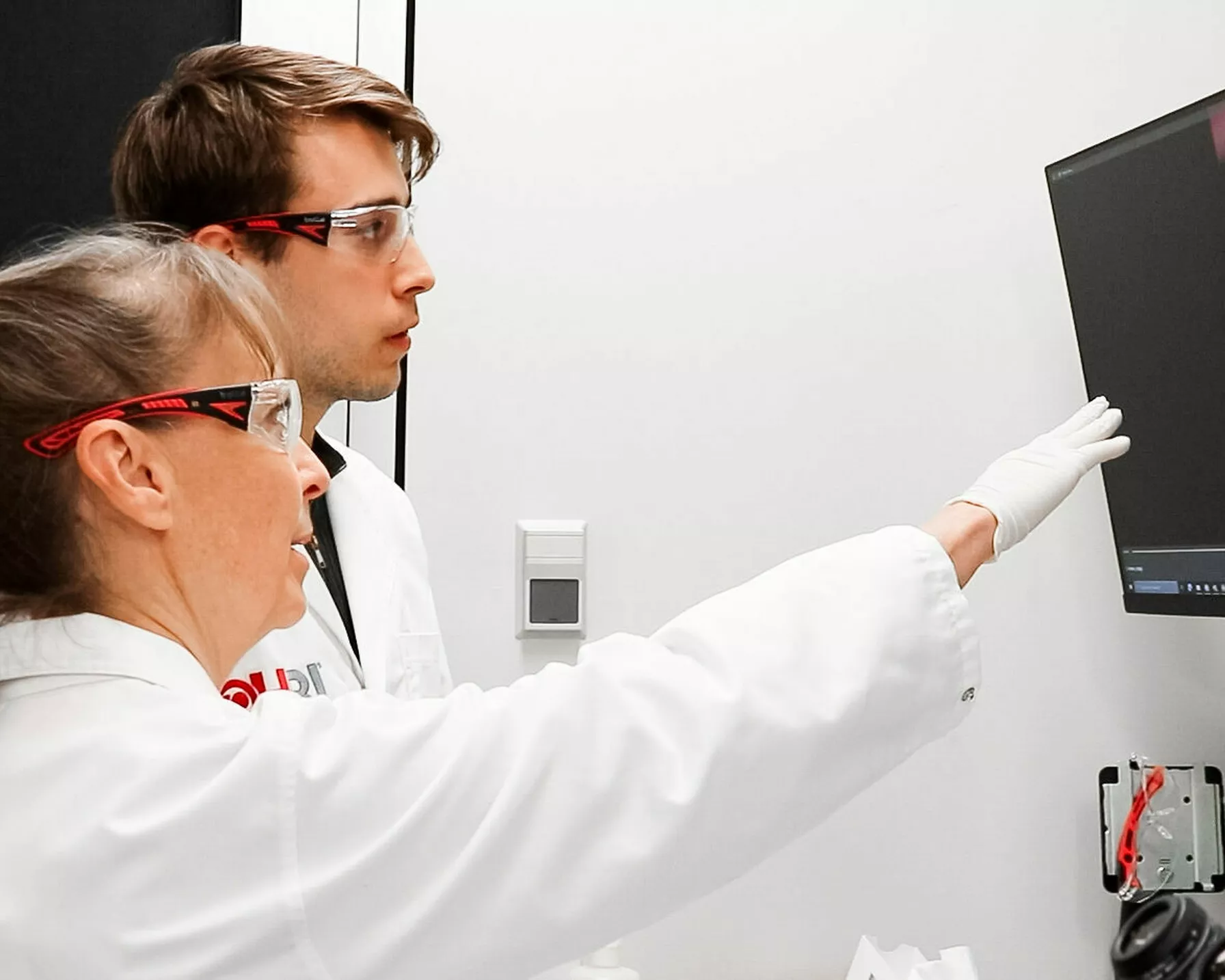A 24-year-old early career researcher with the Heart Research Institute (HRI) says being rejected from medical school was the best thing that ever happened, as he now works alongside world-leading scientists to help examine new blood thinners to successfully bust stroke-causing blood clots, ultimately saving lives.
Cameron Trought has joined HRI’s Thrombosis Group, which leads promising research into the creation of a new generation of effective blood thinners to dissolve blood clots which can cause stroke, and reduce the risk of bleeding.
“The ultimate goal is a drug which can be administered by paramedics in ambulances to help dissolve a blood clot causing stroke during those critical minutes before a patient reaches hospital,” says Cameron.
Cameron has been awarded a four-year PhD scholarship from NSW Health, under the guidance of HRI’s Prof Shaun Jackson and Assoc Prof Simone Schoenwaelder, where he will characterise a new generation of effective blood thinners developed in collaboration with Professor Richard Payne at The University of Sydney School of Chemistry and Dr Xuyu (Johnny) Liu at HRI and the School of Chemistry.
He is one of more than 32,000 medical researchers in Australia, with interest in this career path growing.
Cameron’s role on the team is to help measure how well these drugs can thin the blood and break down blood clots in arteries, and even possibly prevent the blood clot forming in the first place.
Cameron admits the project is also personal.
The PhD student says he had never considered a career in medical research until after completing a degree in Biomedical Science.
“It’s just not something that I knew anything about. It certainly wasn’t on my radar.
“If I’m honest, I actually thought I wanted to go to medical school, but I got rejected. I had friends get in and are now on their way to being doctors, but when I look at what I get to do, to be at the absolute coalface of medical research, I know I made the right choice.
“There are day to day frustrations, but it’s so satisfying when you have a win and figure something out that progresses the project. It’s very much trial and error.”
Cameron is hopeful the Thrombosis team can characterise and develop a much safer anticoagulant drug with the potential to be safely administered en route to hospital.
Approximately 85 per cent of strokes are ischaemic, caused by the blockage of an artery by a blood clot within the brain, reducing cerebral blood flow. If not resolved within a few hours, there can be irreversible brain damage.
There is currently only a single treatment that can dissolve blood clots in the acute phase of stroke: tissue plasminogen activator (tPA). The problem is that only 10 per cent of stroke victims can receive it.
"This will not only bring down the death rate and long-term disability for everyone, but really excitingly to me, it could have the biggest impact on some of our most vulnerable communities,” he says.
Cameron Trought and Assoc Prof Simone Schoenwaelder in the labs
Prof Jackson says if the drug improved blood flow to the brain, without causing excessive bleeding, it could be a game changer in advancing the traditional methods of treating stroke.
“If successful, it would improve the quality of life for thousands of stroke survivors and could minimise the cognitive and physical disabilities caused by stroke,” he says.
Assoc Prof Schoenwaelder says the new drugs would buy the time patients so desperately need.
“One Australian experiences stroke for the first time every 19 minutes, and almost half a million Australians live with the effects of stroke,” she says.
Media coverage
Cameron Trought interviewed for Southern Cross, How to navigate HSC and VCE exams without the stress, 16 October (syndicated across 60 outlets)
Cameron Trought interviewed for Education Today, Silver linings in uni place shortcomings, 3 October


